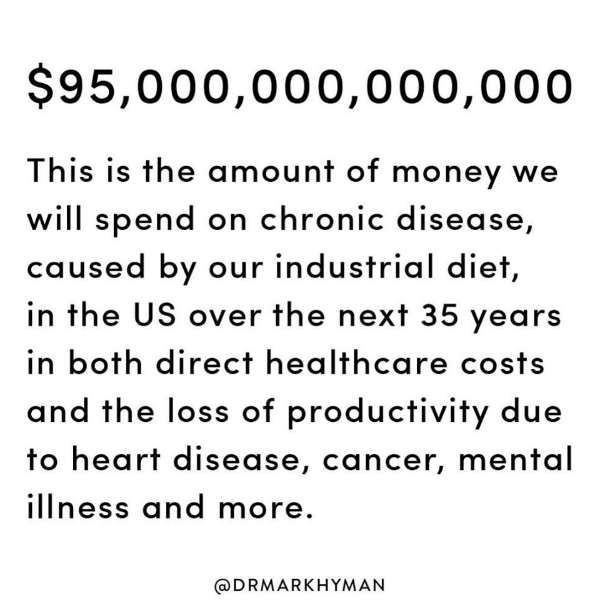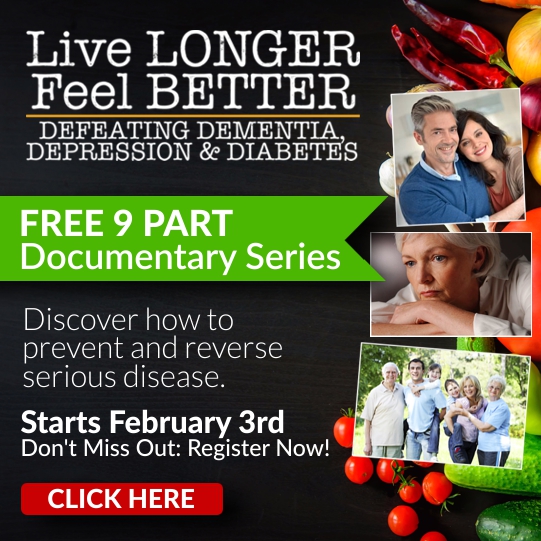If you’re taking vitamin B, you may be taking the wrong one. Not many people know this, but there is not just one type of vitamin B.
Actually, there’s seven of them.
Here’s how to know which one is the perfect fit for you.
B vitamins are critical for efficient liver detoxification of dangerous chemicals such as heavy metals, hormones (especially estrogen) and bacterial toxins that could be at the root of your immune, neurological and hormonal challenges.
B-complex vitamins also have dramatic mood-elevating effects—more so than almost any other nutrient!
I don’t take many supplements but vitamin B Complex is one of them. I use the B Maximus - our clean, well-formulated B vitamins.
Below is a handy outline of some of the crucial B vitamins to include in your daily protocol.
1. Thiamine (B1)
You need thiamine to produce energy.
Thiamine activates Phase I detoxification where foreign substances are broken down into intermediates for excretion.
Balanced levels of thiamine keep you clear-headed and energized. This special B vitamin also helps metabolize glucose. Women addicted to carbohydrates are often thiamine deficient.
Food sources: vegetables, whole grains, nuts, seeds, legumes, seaweed
Optimal daily dose: 25 to 50 mg
2. Riboflavin (B2)
Riboflavin is key to maintaining proper thyroid function.
Deficiency in vitamin B2 inhibits the liver detox pathway that eliminates bacterial toxins. B2 is also necessary for essential fatty acid metabolism, which improves energy production in certain nerve cells.
Food sources: whole grains, legumes, green leafy vegetables, poultry, fish, seaweed
Optimal daily dose: 25 to 50 mg
3. Niacin (B3)
Like B1, B3 induces Phase I detoxification.
Niacin also helps to regulate blood sugar levels and impacts the adrenal hormones.
It has an indirect effect on serotonin levels, because the body uses tryptophan (the amino acid that is the precursor to serotonin production) to produce niacin. For these reasons, Niacin is said to have antidepressant effects.
This key B vitamin also promotes the release of growth hormone.
Food sources: liver, peanuts, sesame seeds, sunflower seeds, brown rice, whole grains, barley, almonds, seaweed
Optimal daily dose: 25 to 50 mg
4. Pantothenic acid (B5)
Pantothenic acid provides foundational support for both Phase I and Phase II detoxification, and more specifically, the elimination of inflammatory substances.
Vitamin B5 plays a big role in the production of adrenal hormones and is vital for coping with extreme stress. All the steroid hormones, such as estrogen and progesterone, can only be made with ample B5 in the system.
Food sources: avocado, mushrooms, liver, soybeans, banana, collard greens, sunflower seeds, lentils, broccoli, brown rice, eggs
Optimal daily dose: 25 to 50 mg
5. Pyridoxine (B6)
Healthy levels of B6 keep the liver functioning optimally by promoting the proper flow of fat and bile to and from the liver.
Pyridoxine also has one of the most dramatic mood-elevating effects of all the B vitamins.
It can help to correct brain metabolism dysfunctions that cause depression, and heightens serotonin production.
Vitamin B6 binds to estrogen, progesterone, and testosterone, helping to detoxify excess amounts of these steroid hormones, helping to reduce the risk of hormone-related cancers.
Food sources: spinach, walnuts, eggs, fish, poultry, beans, seaweed
Optimal daily dose: 25 to 50 mg, not to exceed 100 mg/day
6. Cobalamin (B12)
B12 is an important factor for the activation of the liver detox pathway that flushes away the heavy metals and histamines. Cobalamin has big effects on mood and allows for a free flow of neurotransmitters. It also helps the body to secrete melatonin.
I recommend B12 in a methylated form (methylcobalamin) since 70% of our population has MTHFR mutations.
Food sources: animal protein (especially liver), seafood, eggs, some cheeses, tempeh, sea vegetables, brewer’s yeast, blue and green algae, chlorella, seaweed, bee pollen.
Optimal daily dose: 50 to 100 mg
7. Folic Acid or Folate (B9)
Folate is a critical inducer of several of the detoxification pathways.
Vitamin B9 breaks down homocysteine, a toxic and inflammatory agent produced by the liver if not properly converted. Folate has direct mood-elevating properties and is synergistic with serotonin production.
There are studies that show how folic acid helps lower ACTH, which is an adrenal hormone that leads to increased blood pressure.
For childbearing women, folate in the system helps prevent neural tube defects and the resulting brain and nervous system damage to the baby.
Food sources: dark leafy greens, asparagus, bananas, cantaloupes, beans
Optimal daily dose: 400 to 800 mcg
Actually, there’s seven of them.
Here’s how to know which one is the perfect fit for you.
B vitamins are critical for efficient liver detoxification of dangerous chemicals such as heavy metals, hormones (especially estrogen) and bacterial toxins that could be at the root of your immune, neurological and hormonal challenges.
B-complex vitamins also have dramatic mood-elevating effects—more so than almost any other nutrient!
I don’t take many supplements but vitamin B Complex is one of them. I use the B Maximus - our clean, well-formulated B vitamins.
Below is a handy outline of some of the crucial B vitamins to include in your daily protocol.
1. Thiamine (B1)
You need thiamine to produce energy.
Thiamine activates Phase I detoxification where foreign substances are broken down into intermediates for excretion.
Balanced levels of thiamine keep you clear-headed and energized. This special B vitamin also helps metabolize glucose. Women addicted to carbohydrates are often thiamine deficient.
Food sources: vegetables, whole grains, nuts, seeds, legumes, seaweed
Optimal daily dose: 25 to 50 mg
2. Riboflavin (B2)
Riboflavin is key to maintaining proper thyroid function.
Deficiency in vitamin B2 inhibits the liver detox pathway that eliminates bacterial toxins. B2 is also necessary for essential fatty acid metabolism, which improves energy production in certain nerve cells.
Food sources: whole grains, legumes, green leafy vegetables, poultry, fish, seaweed
Optimal daily dose: 25 to 50 mg
3. Niacin (B3)
Like B1, B3 induces Phase I detoxification.
Niacin also helps to regulate blood sugar levels and impacts the adrenal hormones.
It has an indirect effect on serotonin levels, because the body uses tryptophan (the amino acid that is the precursor to serotonin production) to produce niacin. For these reasons, Niacin is said to have antidepressant effects.
This key B vitamin also promotes the release of growth hormone.
Food sources: liver, peanuts, sesame seeds, sunflower seeds, brown rice, whole grains, barley, almonds, seaweed
Optimal daily dose: 25 to 50 mg
4. Pantothenic acid (B5)
Pantothenic acid provides foundational support for both Phase I and Phase II detoxification, and more specifically, the elimination of inflammatory substances.
Vitamin B5 plays a big role in the production of adrenal hormones and is vital for coping with extreme stress. All the steroid hormones, such as estrogen and progesterone, can only be made with ample B5 in the system.
Food sources: avocado, mushrooms, liver, soybeans, banana, collard greens, sunflower seeds, lentils, broccoli, brown rice, eggs
Optimal daily dose: 25 to 50 mg
5. Pyridoxine (B6)
Healthy levels of B6 keep the liver functioning optimally by promoting the proper flow of fat and bile to and from the liver.
Pyridoxine also has one of the most dramatic mood-elevating effects of all the B vitamins.
It can help to correct brain metabolism dysfunctions that cause depression, and heightens serotonin production.
Vitamin B6 binds to estrogen, progesterone, and testosterone, helping to detoxify excess amounts of these steroid hormones, helping to reduce the risk of hormone-related cancers.
Food sources: spinach, walnuts, eggs, fish, poultry, beans, seaweed
Optimal daily dose: 25 to 50 mg, not to exceed 100 mg/day
6. Cobalamin (B12)
B12 is an important factor for the activation of the liver detox pathway that flushes away the heavy metals and histamines. Cobalamin has big effects on mood and allows for a free flow of neurotransmitters. It also helps the body to secrete melatonin.
I recommend B12 in a methylated form (methylcobalamin) since 70% of our population has MTHFR mutations.
Food sources: animal protein (especially liver), seafood, eggs, some cheeses, tempeh, sea vegetables, brewer’s yeast, blue and green algae, chlorella, seaweed, bee pollen.
Optimal daily dose: 50 to 100 mg
7. Folic Acid or Folate (B9)
Folate is a critical inducer of several of the detoxification pathways.
Vitamin B9 breaks down homocysteine, a toxic and inflammatory agent produced by the liver if not properly converted. Folate has direct mood-elevating properties and is synergistic with serotonin production.
There are studies that show how folic acid helps lower ACTH, which is an adrenal hormone that leads to increased blood pressure.
For childbearing women, folate in the system helps prevent neural tube defects and the resulting brain and nervous system damage to the baby.
Food sources: dark leafy greens, asparagus, bananas, cantaloupes, beans
Optimal daily dose: 400 to 800 mcg
Last edited:








